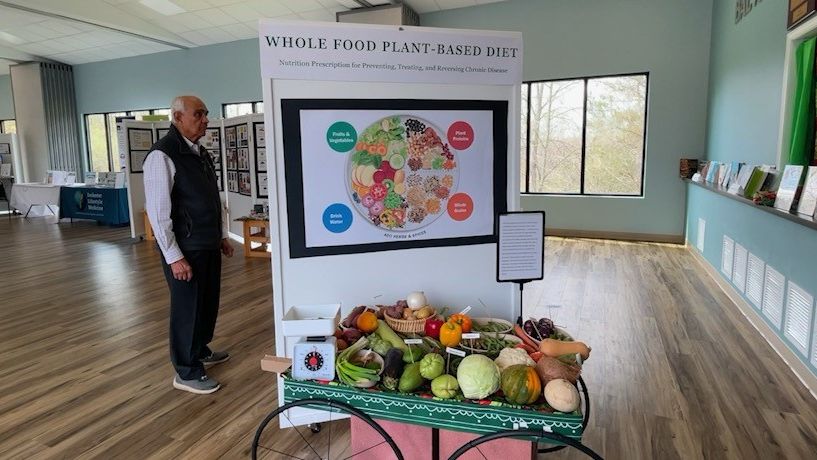According to the National Institutes of Health, South Asians have a higher risk of cardiovascular disease, diabetes, and even cancer compared to other ethnic groups.
Macedonia's Indian Heritage Museum is working to highlight health disparities with its latest exhibition.
South Asia has a long tradition of vegetarianism with deep roots in religious and cultural practices.
“Plant-based nutrition is something we all practice and we wanted to highlight the need for plant-based nutrition,” said Hema Bhaskaran, co-director of the Indian Heritage Museum.
With a rich cultural heritage and diverse culinary traditions, the Indian Heritage Museum offers a treasure trove of knowledge about plant-based diets.
“The Indian Heritage Museum has exhibits on Indian heritage, and plant-based diets are very popular in India,” Bhaskaran said. “Many cultures in India follow a plant-based diet. So we thought this would be a good idea to introduce our spices, different spices and different cooking techniques.”
Studies have shown that this population, primarily from India, Pakistan, Bangladesh and Nepal, is more prone to cardiovascular disease, diabetes and cancer than the general population. It's not just about genetics, it's also about health behaviors.
“What an incredible accomplishment it would be for people to go off insulin for two weeks. And that could have a huge impact on people's health. There are 30 or 40 million people in this country with diabetes. And if we all follow this program, let's see what we can do medically once we get off the medication.”
The new exhibit will provide visitors with informative exhibits and resources, along with a carefully selected series of events, from cooking demonstrations to yoga classes.
Organizers not only advocate for a healthier lifestyle, but also demonstrate the many disparities often experienced.
“When I came to this country in 1970, people would go from here to Toronto or New York City and take their groceries with them wherever they lived for a month or two. That's how we shopped. That's how we did it,” said volunteer Sharad Rajguru. He said. “But since 2000, more Indians have come into the country and now we have enough.”
Many guests and hosts shared the benefits of following a plant-based diet.
“I am 86 years old,” Rajguru said. “I don't have any illnesses or medicines. My knee is fine. My health is good. It's a good lifestyle.”
Offering a multi-layered experience, the presentation reflects the vibrant cultural diversity and traditions that South Asia has to offer. We hope our guests will move not only to a healthier future, but to a more inclusive future.
“We want to move this exhibition from school to school. If they agree, I would love to bring this exhibition to the attention of young people. I hope you can live a fulfilling life,” one visitor said. He said.
To join the exhibition and learn more about the Indian Heritage Museum, please visit here.


